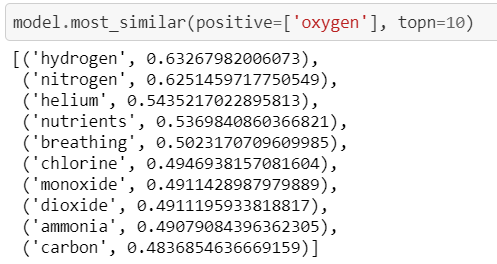This project was originally intended for an AI course at Sofia University. During it's execution, I was constraint on time and couldn't implement all the ideas I had, but I plan to continue working.
The idea is to generate multiple choice answers from text, by splitting this complex problem to simpler steps:
- Identify keywords from the text and use them as answers to the questions.
- Replace the answer from the sentence with blank space and use it as the base for the question.
- Transform the sentence with a blank space for answer to a more question-like sentence.
- Generate words, that are similar to the answer, as incorrect answers.
Before I could to anything, I wanted to understand more about how questions are made and what kind of words are it's answers.
I used the SQuAD 1.0 dataset which has about 100 000 questions generated from Wikipedia articles.
You can read about the insights I've found in the Data Exploration jupyter notebook.
My assumption was that words from the text would be great answers for questions. All I needed to do was to decide which words, or short phrases, are good enough to become answers.
I decided to do a binary classification on each word, or named entity, from the text. spaCy really helped me with the word tagging.
I pretty much needed to create the entire dataset for the binary classification. I extracted each non-stop word from the Wikipedia articles in the SQuAD dataset added some features on it:
- Part of speech
- Is it a Named entity
- Are only alpha characters used
- Shape - whether it's only alpha characters, digits, has punctuation (xxxx, dddd, Xxx X. Xxxx)
- Word count
I think that a TF-IDF score and cosine similarity to the title could be the most influential when training but I didn't have the time.
I would like to implement them and think of some other features - maybe whether it's in the start, middle or end of a sentence, information about the words surrounding it and more...
After that it would be useful to see which features are most important for the algorithm.
I found the problem similar to spam filtering, where a common approach is to tag each word of an email as coming from a spam or not a spam email.
I used scikit-learn's Gaussian Naive Bayes algorithm to classify each word whether it's an answer.
The results were surprisingly good - at a quick glance, the algorithm classified most of the words as answers. The ones it didn't were in fact unfit.
I would like to play a bit more with the data and try to get fewer words classified as answers. I think it would be a great idea to get a score (0 to 1) for each word. That way I could start generating questions for the words with the highest score and eventually, for the lower scoring ones I would expect lower quality questions.
Another assumption I had was that the sentence of an answer could easily be turned to a question. Just by placing a blank space in the position of the answer in the text I get a "cloze" question (sentence with a blank space for the missing word)
Answer: Oxygen
Question: _____ is a chemical element with symbol O and atomic number 8.
I decided it wasn't worth it to transform the cloze question to a more question-looking sentence, but I imagine it could be done with a seq2seq neural network, similarly to the way text is translated from one language to another.
The part turned out really well.
For each answer I generate it's most similar words using word embeddings and cosine similarity.
Most of the words are just fine and could easily be mistaken for the correct answer. But there are some which are obviously not appropriate.
Since I didn't have a dataset with incorrect answers I fell back on a more classical approach.
I removed the words that weren't the same part of speech or the same named entity as the answer, and added some more context from the question.
I would like to find a dataset with multiple choice answers and see if I can create a ML model for generating better incorrect answers.
I find this topic quite interesting and with a lot of potential. I would like to try all of the ideas I didn't have time for and explore some more.
After that, I will merge all of the work I've done, into a script that would directly generate a json file with questions and answers ready to be used in an application.

